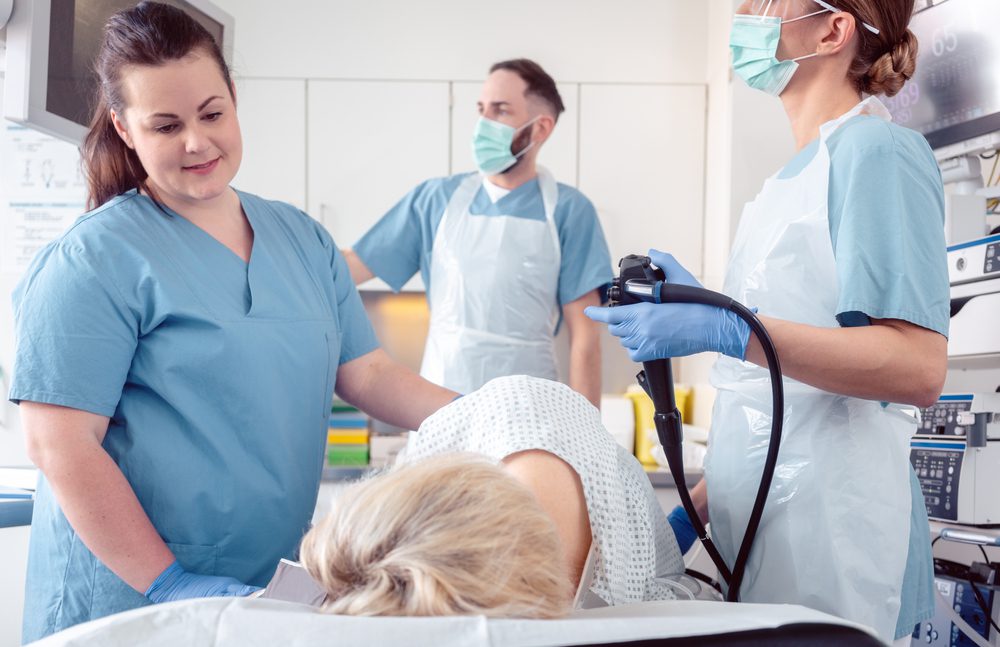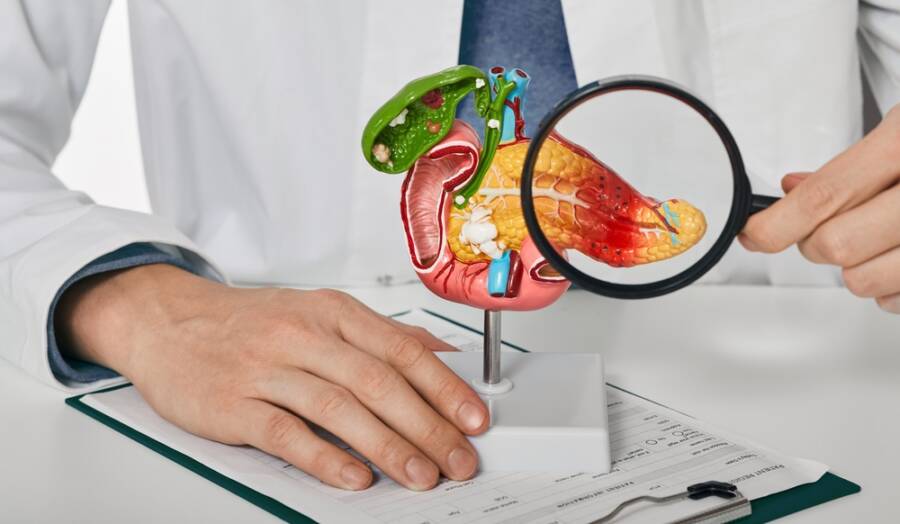Colon cancer is a growth of cells that starts in a part of the large intestine known as the colon. The colon is also the first and longest part of the large intestine. The large intestine is the last in the digestive system.
The digestive system breaks down food for our bodies to use. This cancer generally affects older adults, even if it truly can happen at any age. It generally starts in small clumps of cells known as polyps that form inside the colon.
Polyps technically aren’t cancerous, even if some can turn into colon cancers over time. Polyps often don’t cause any symptoms. For this particular reason, doctors advise regular screening tests, to effectively look for polyps in the colon.
Finding and removing polyps helps prevent this type of cancer. If the cancer develops, there are plenty of treatments that can help control it. Treatments also include surgery, radiation therapy, and medicines, like chemotherapy, targeted therapy, and immunotherapy.
At times, this type of cancer is also known as colorectal cancer. This term generally mixes this type of cancer and rectal cancer, which starts in the rectum.

Symptoms
Plenty of people with this cancer don’t have any symptoms. When they appear, they will generally depend on the cancer’s size and where it is found in the large intestine. Here are some of the most important symptoms of colon cancer:
- a change in bowel habits, assisted by more frequent diarrhea and constipation;
- rectal bleeding or blood in the stool;
- persistent discomfort in the belly area, like cramps, gas, and pain;
- a persistent feeling that the bowel doesn’t empty all the way during the bowel movement
- weakness or tiredness
- losing weight without even trying
Causes
Doctors aren’t very sure what causes this type of cancer. However, it is known that this type of cancer occurs when cells in the colon start changing their DNA. A cell’s DNA holds the instructions that tell the cell what to do.
The changes also announce to the cells that they need to multiply quickly. The changes allow the cells to live when healthy cells die as part of their natural lifecycle.
This could cause a cell overgrowth, and they form a mass known as a tumor. The cells can invade and destroy healthy body tissue. Over time, the cells can break away and spread to other parts of the body. When they spread, it’s known as metastatic cancer.
Risk factors
Factors could drastically increase the risk of this type of cancer, such as:
- older age – colon cancer can really happen at any age. However, most people with colon cancer are older than 50. The number of people who are younger than 50 and have this cancer has been increasing in the past years, and doctors still don’t know why.
- black race – it seems that black people in the United States have a much higher risk of this type of cancer than people of other races.
- a history of colorectal cancer and polyps – having had colon cancer or colon polyps can easily increase the risk of colon cancer.
- inflammatory bowel disease – certain conditions that cause pain and swelling of the intestines, also known as inflammatory bowel diseases, can easily increase the risk of colon cancer. These conditions can also include ulcerative colitis and Crohn’s disease.
- inherited syndromes that increase colon cancer risks – Some DNA changes could easily increase the risk of colon cancer in families who suffer from it. In fact, the most common inherited syndrome that increases colon cancer risk is familial adenomatous polyposis or Lynch syndrome.
- family history of this type of cancer – having a blood relative with this type of cancer can easily increase the risk of getting colon cancer. Having more than one family member with colon cancer or even rectal cancer increases the risk even more.
- lowe-fiber, high-fat diet – Colon cancer and rectal cancer could be linked with a typical Western diet. This specific type of diet tends to be much lower in fiber, and higher in fat and calories. Research in this area came with mixed results. In fact, some studies would say that there’s an increased risk of this type of cancer in people who eat plenty of red meat and processed meat.
- not exercising on a regular basis – People who are not active enough are way more likely to develop colon cancer. That’s why getting regular physical activity could help lower such risks.
- diabetes – people who suffer from diabetes or even insulin resistance have an increased risk of colon cancer.
- obesity – people who are obese or insulin-resistant have an increased risk of colon cancer.
- smoking – people who smoke can also have an increased risk of colon cancer.
- drinking alcohol – drinking way too much alcohol can increase the risk of colon cancer.
- radiation therapy for cancer – radiation therapy directed at the abdomen also increases the risk of colon cancer.
How can you prevent it?
Screening for colon cancer
Doctors advise people who know they have an average risk of this type of cancer to consider starting colon cancer screening at around 45 years old. Moreover, people with an increased risk should also consider starting screening sooner (it’s worth mentioning that an increased risk implies a family history of this cancer.)
There are many different tests that can be used for a proper colon cancer screening. You can discuss the options on hand with your healthcare team.
Lifestyle changes to reduce the risk of colon cancer
Making the right changes in everyday life can easily reduce the risk of colon cancer. To lower such risks, you need to consider:
- eating a wide variety of fruits, vegetables, and whole grains
- drinking alcohol in moderation
- stop smoking
- exercising most days of the week
- keeping a healthy weight

Colon cancer prevention for people with a higher risk
Some medicines might reduce the risk of colon polyps and this type of cancer. For example, some evidence links a reduced risk of polyps and colon cancer to regular use of aspirin or even aspirin-like medicines.
However, it’s not clear what length of time would be required to reduce the risk of colon cancer. Taking aspirin on a daily basis (even if it does present some risks, like ulcers and bleeding in the digestive system).
As a general rule, such options are reserved for people with a high risk of cancer. There’s not enough evidence to fully recommend such medications to people who might have an average risk of this type of cancer.
Colon cancer screening: at what age can you stop?
“I’m 76 years old and wondering when it’s no longer needed to get screening for this type of cancer. Is there an upper age limit?”
There’s truly no upper age limit for colon cancer screening. However, most medical organizations in the United States agree that the overall benefits of screening tend to decline after reaching 75 years old and that there’s little evidence to support undergoing such screenings after 85 years old.
The best thing is to discuss cancer screening with your healthcare provider. Together, you can assess whether or not it’s still worth investigating through screenings.
If you found this article useful, we also recommend checking: 17 Random Things That Can Trigger Psoriasis in Seniors
8 Iconic Route 66 Restaurants You’ll Want on Your Road Trip Bucket List
Science Says if You Eat These 11 Flowers, You Get Healthier. Is It a Scam?
10 Silent Signs of Stomach Cancer to Read NOW














One Response